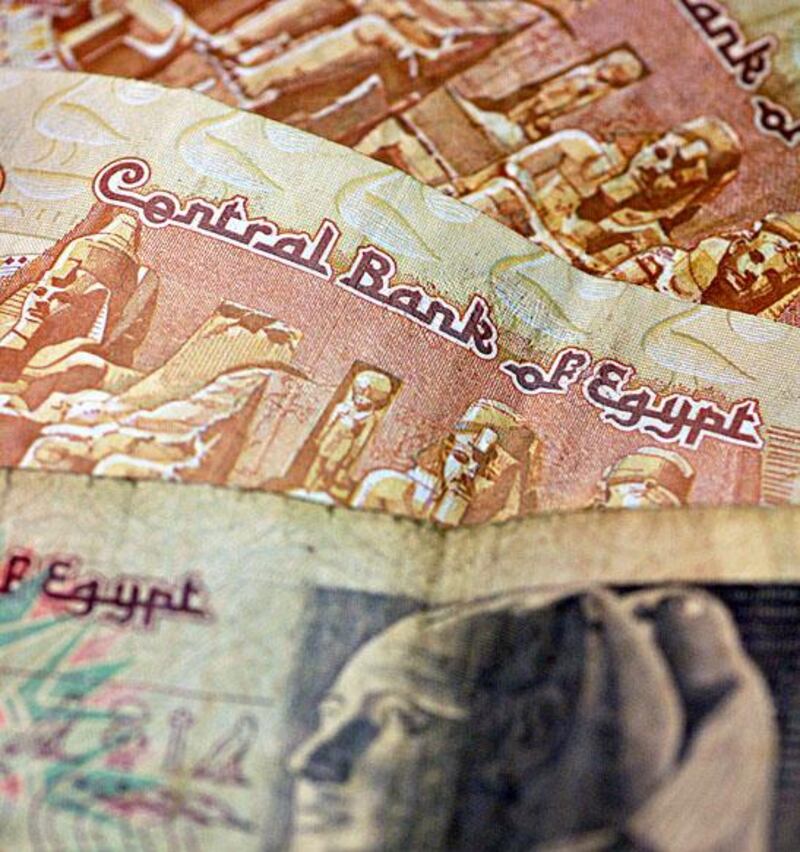Economists welcomed a “long overdue” devaluation of the Egyptian pound, but warned that higher inflation could be on the way.
Razan Nasser, a senior economist for the Middle East at HSBC, called the move to lower the country’s official exchange rate to the US dollar by 13 per cent on Monday “a welcome step”.
“It would have been better if this had taken place 18 months ago. But it’s better to do something now than to continue with an overvalued currency,” she said.
Devaluation will also help to encourage foreign investors back to Egypt after shying away during the drought of dollars.
“It’s by no means a silver bullet that will suddenly cure the tourism industry or boost manufacturing exports,” said Jean-Paul Pigat, senior economist at Emirates NBD. “But the fear of devaluation has been hanging over the outlook for Egypt for so long, and has been why foreign investors are shying away, that devaluation will be a positive catalyst to facilitate capital flows in the short term.”
Inflation will increase as the weaker pound makes imports more expensive, economists said, hurting consumers.
“There’s definitely short-term pain related to devaluation,” Ms Nasser said.
Monica Malik, the chief economist at ADCB, said: “There will be a jump in inflation,” but added that existing currency shortages have already seen inflation increase, as the local scarcity of goods pushes up prices.”
Mr Pigat said that the initial inflation spike might not be as bad as expected, because black market trade has already led to high import prices.
The Egyptian central bank would be likely follow the move with interest rate rises, analysts said.
Jason Tuvey, an emerging markets economist at Capital Economics, expects an interest rate rise of 100 basis points following the central bank of Egypt’s meeting tomorrow. Ms Malik expects an increase of at least 50 basis points.
Economists hoped that the move would signal permanent changes to how the government sets the value of the Egyptian pound.
“The test for the new regime is whether the central bank will allow the Egyptian pound to be more volatile, and whether they will allow it to weaken further,” Ms Nasser said.
The outlook for the Egyptian economy depends on whether the government “fulfils their promises on moving towards a more flexible exchange rate regime, even if that means allowing it to weaken further if necessary”.
Mr Pigat said: “Hopefully this is just part and parcel of a package of broader reforms that will appear over the next few months”.
abouyamourn@thenational.ae
Follow The National's Business section on Twitter





